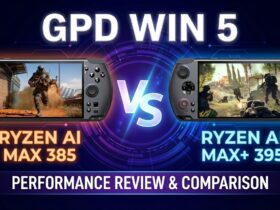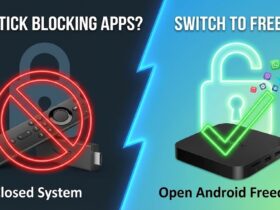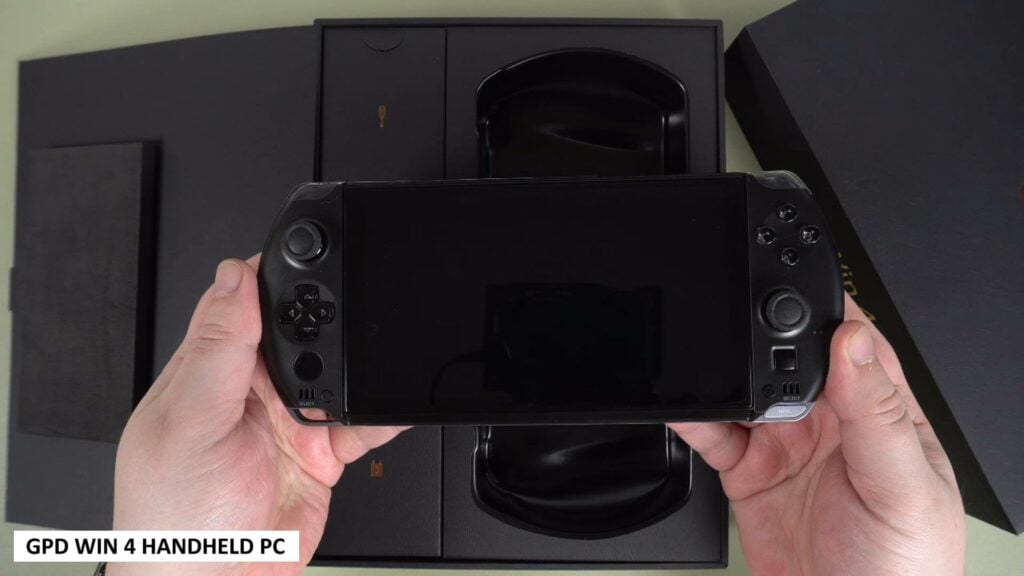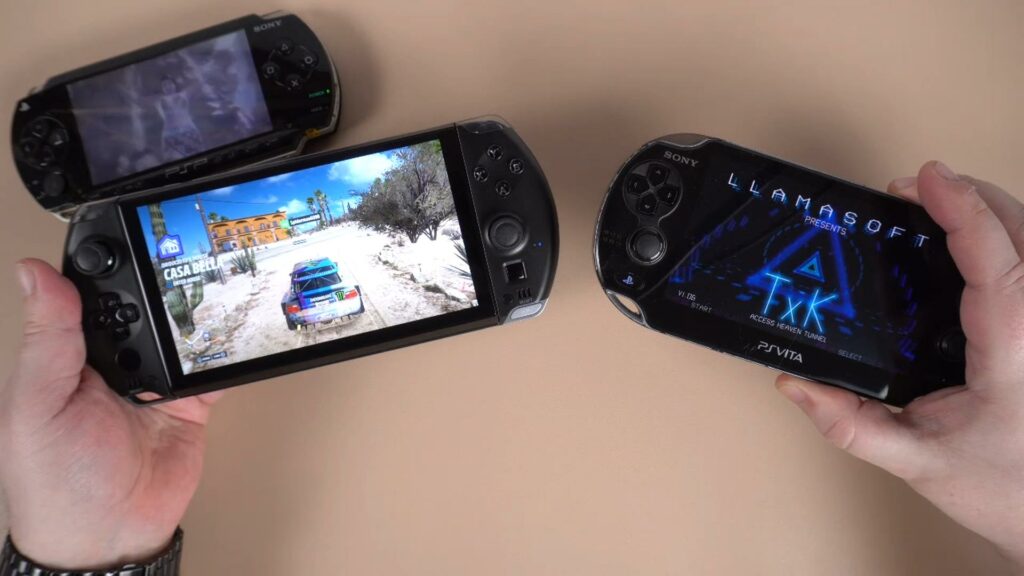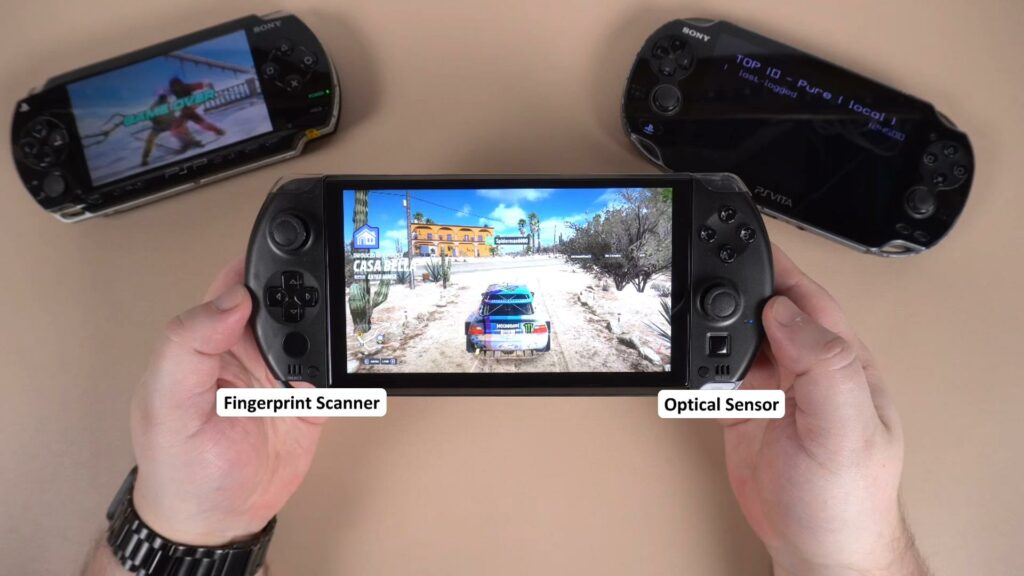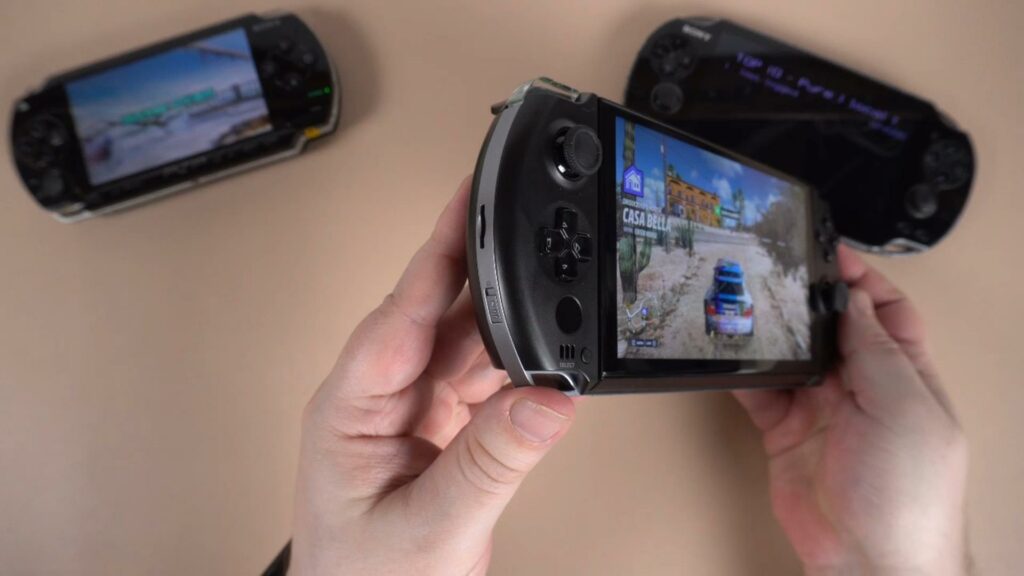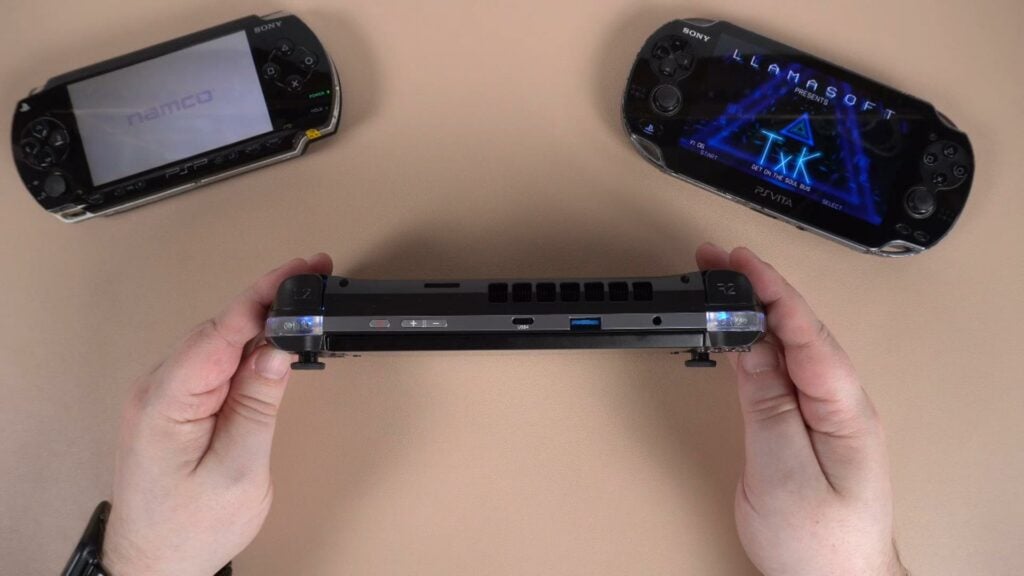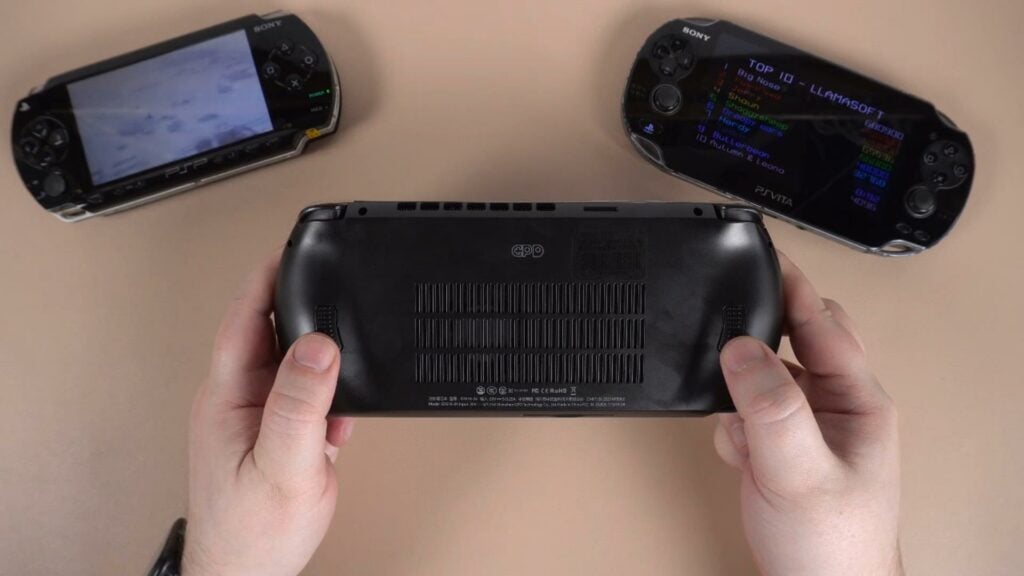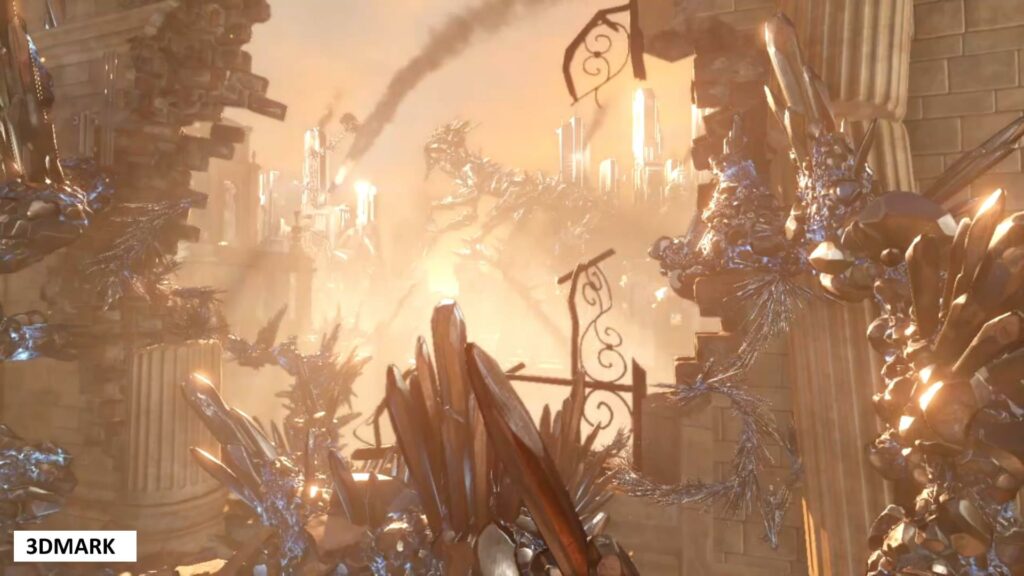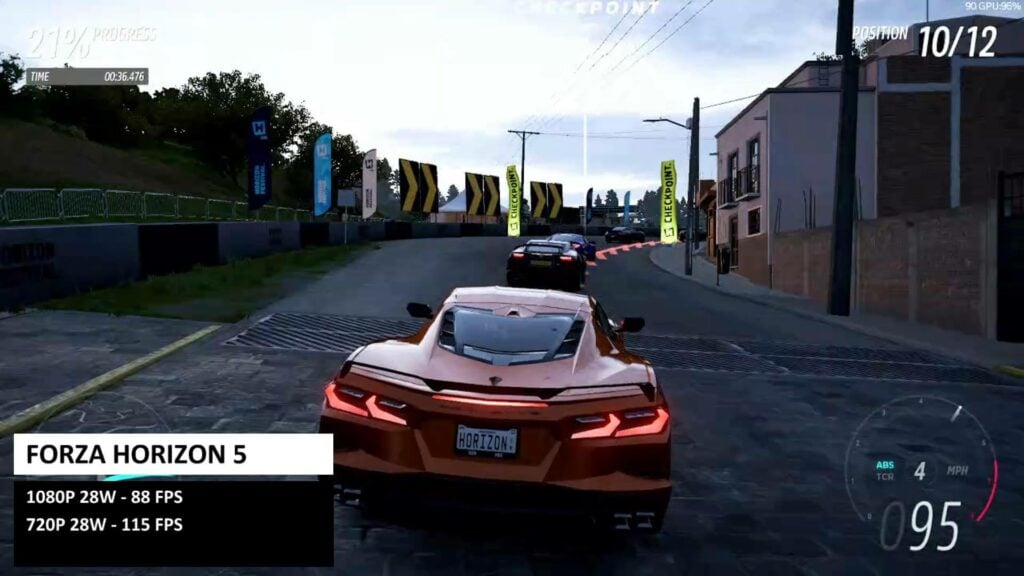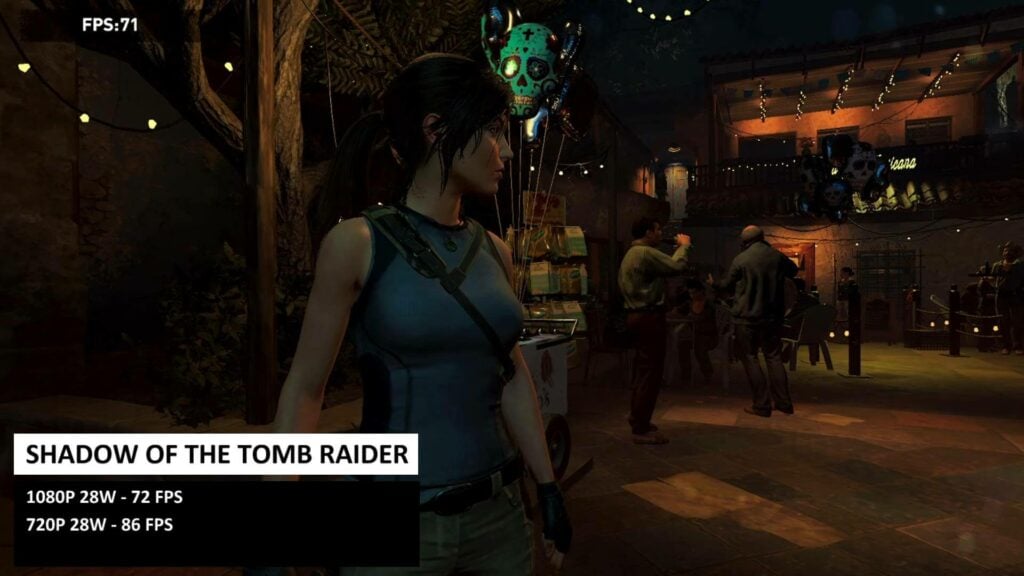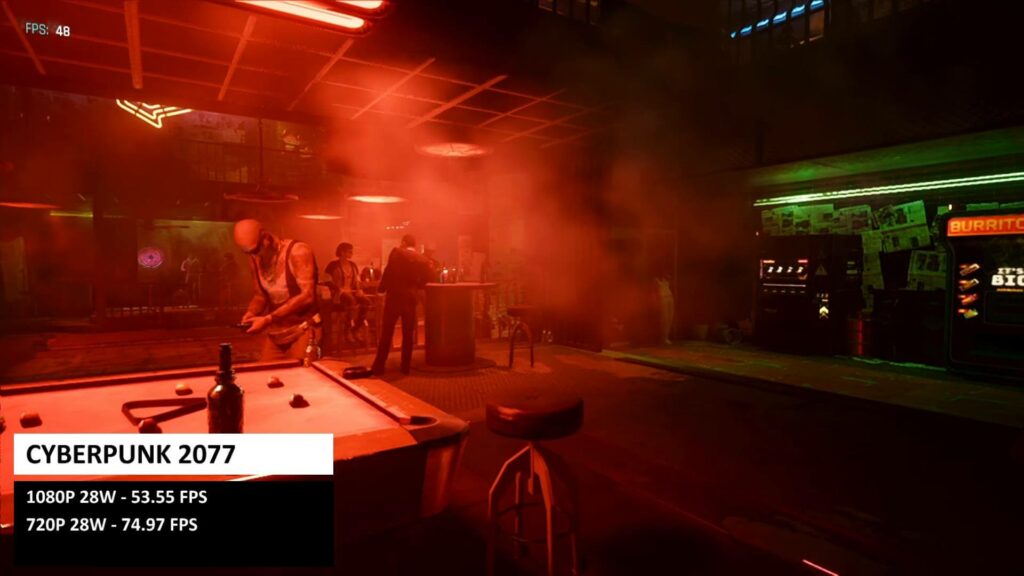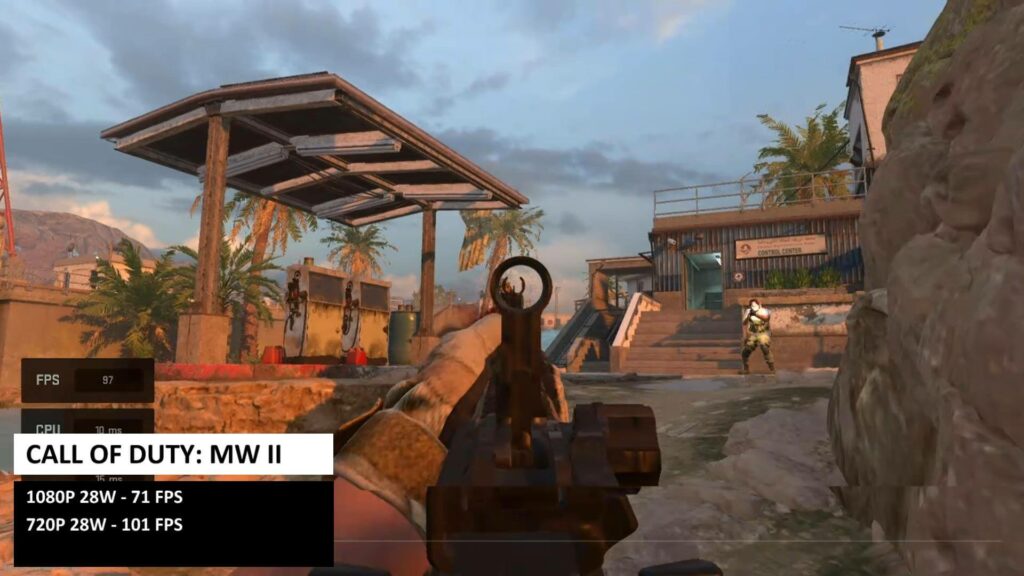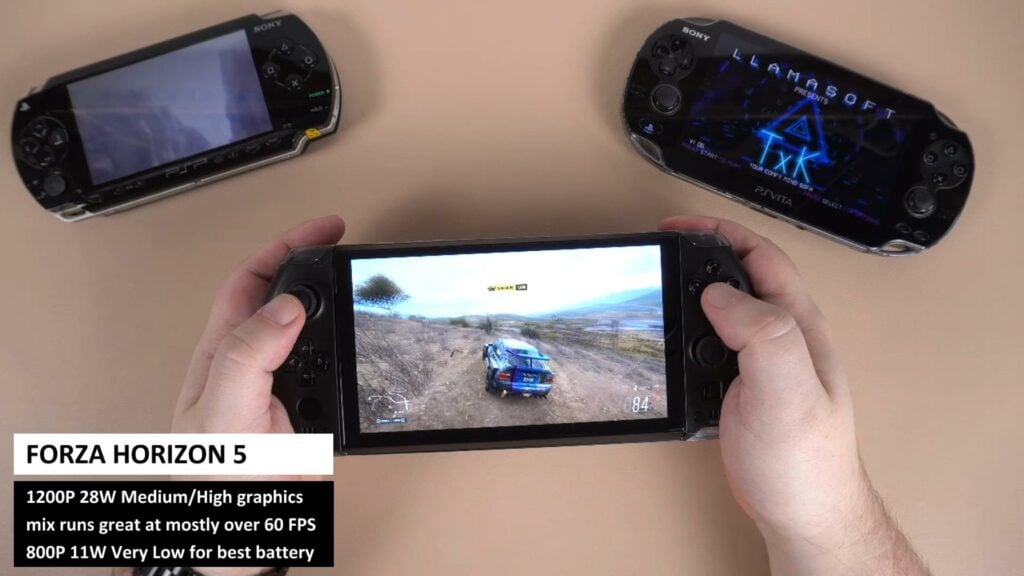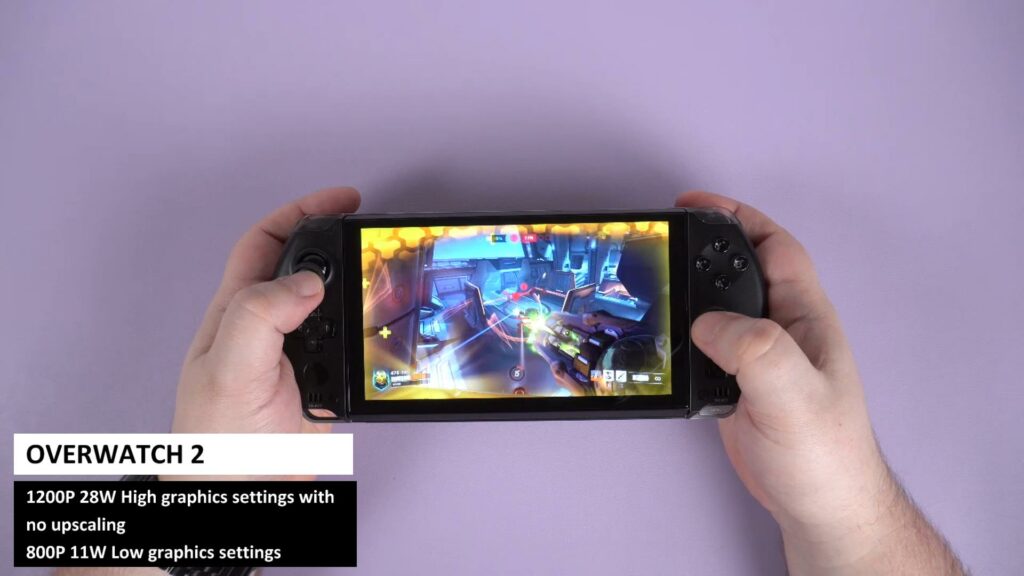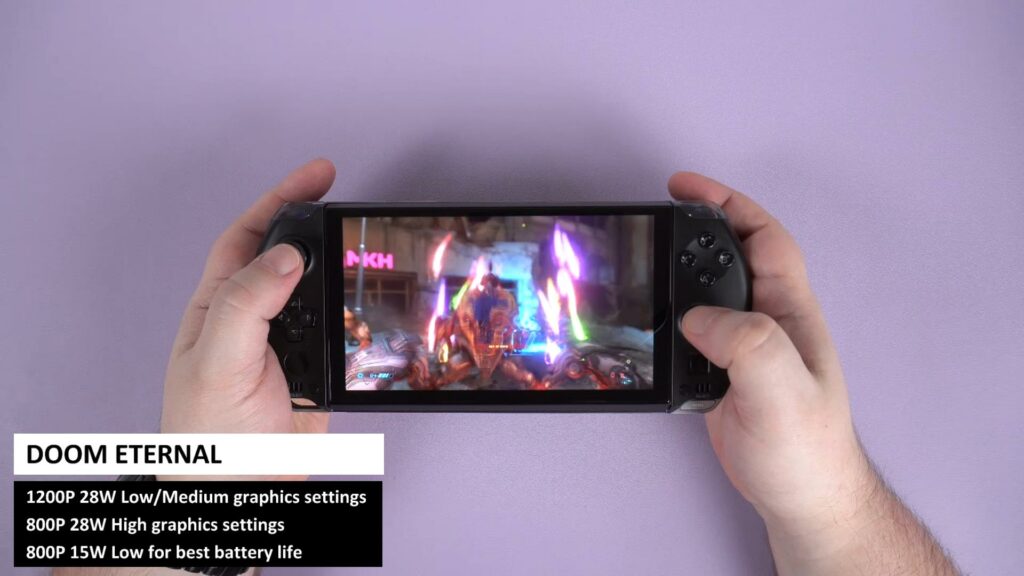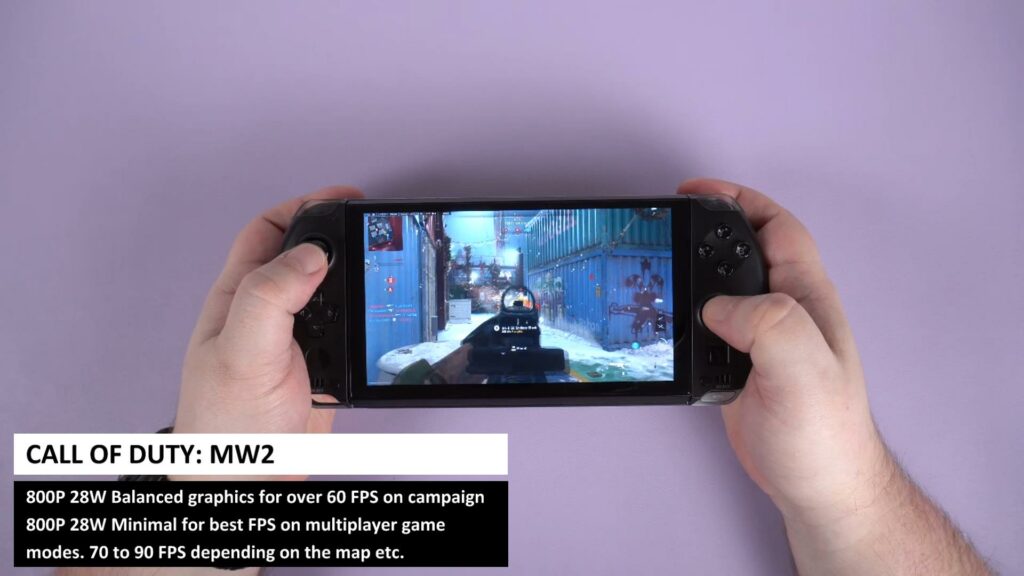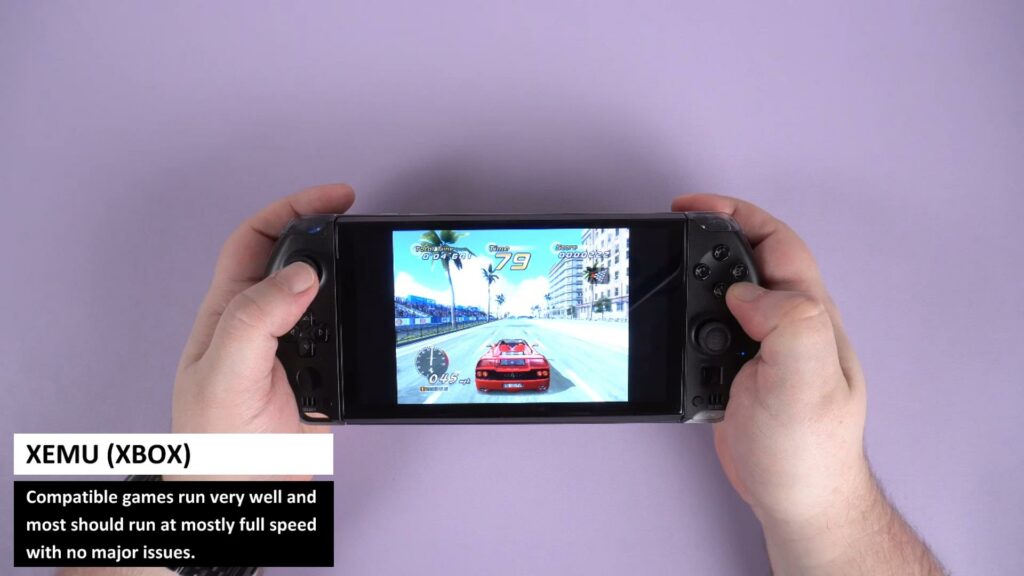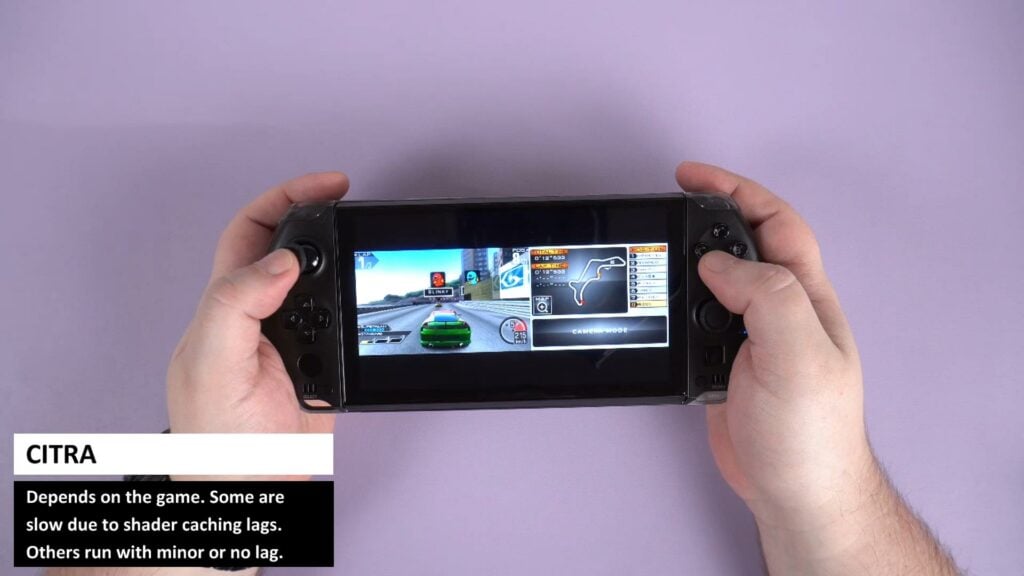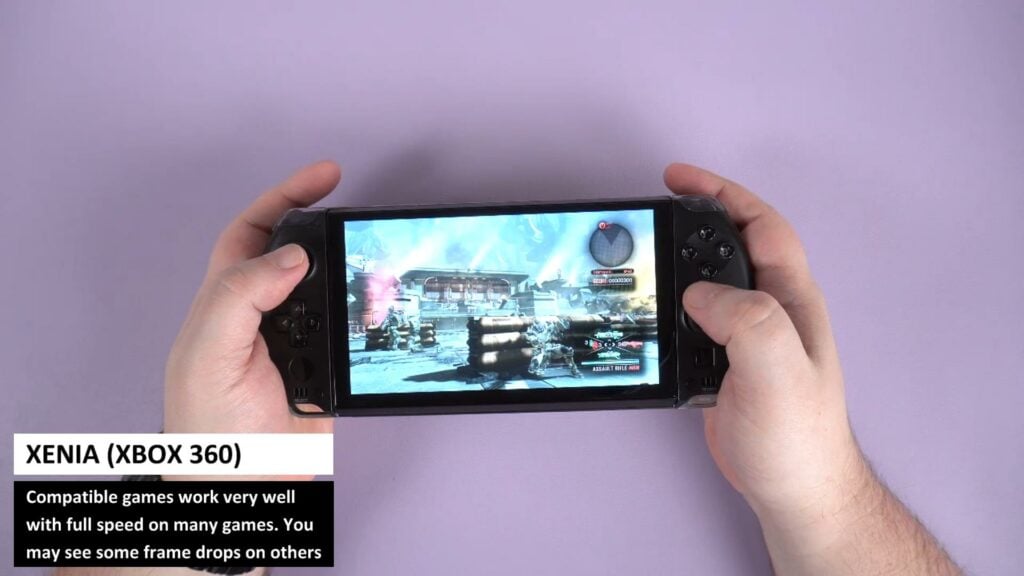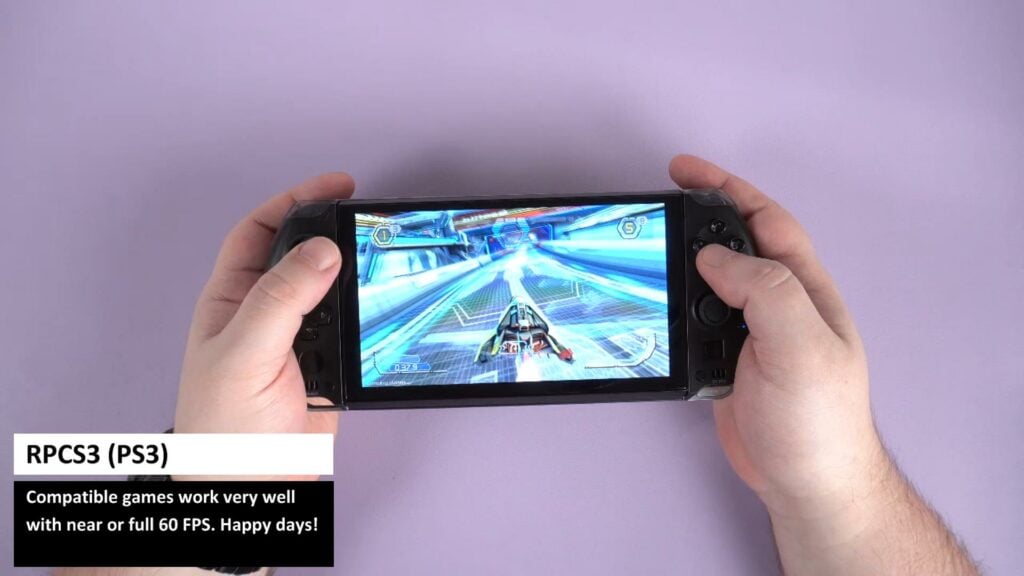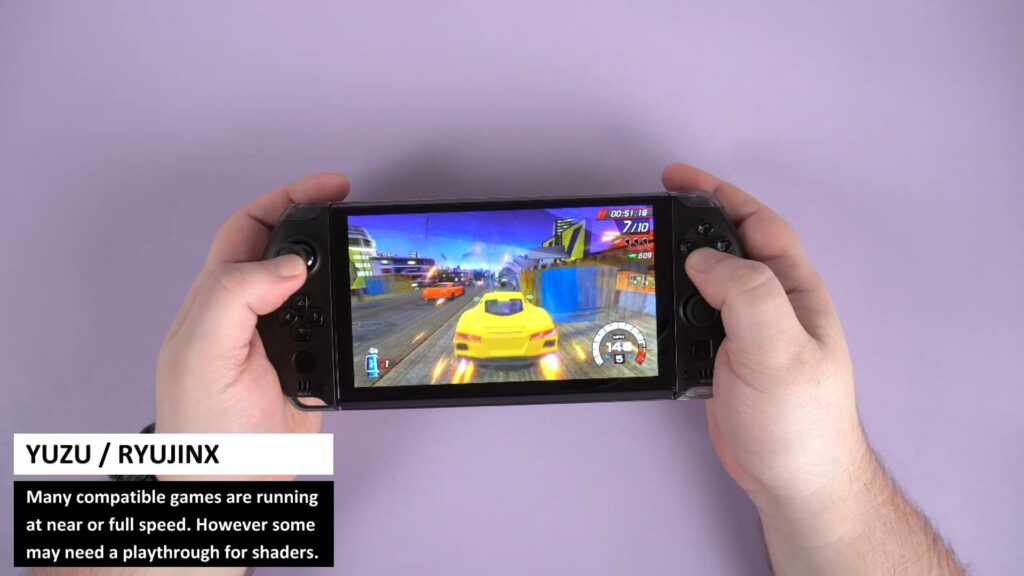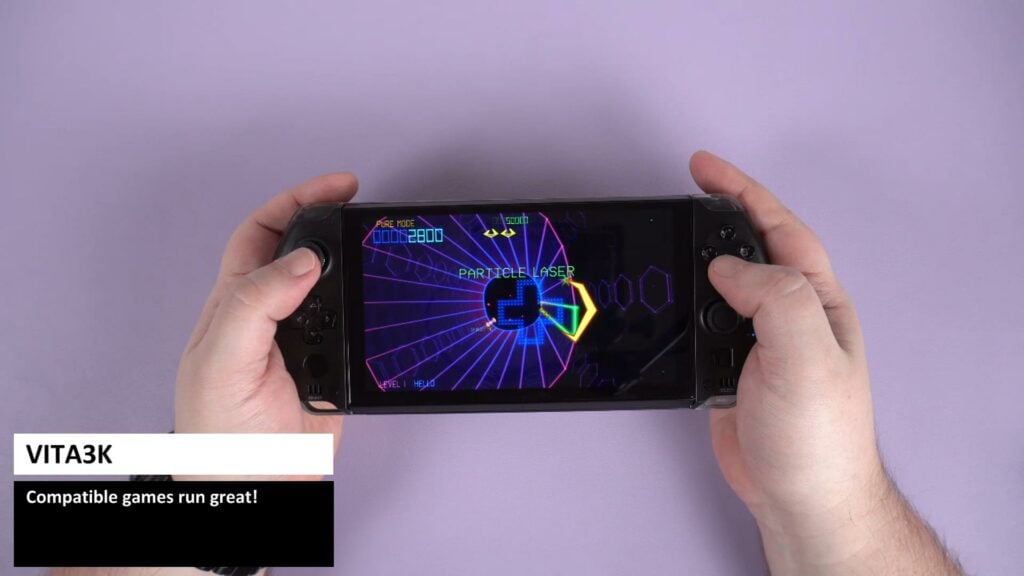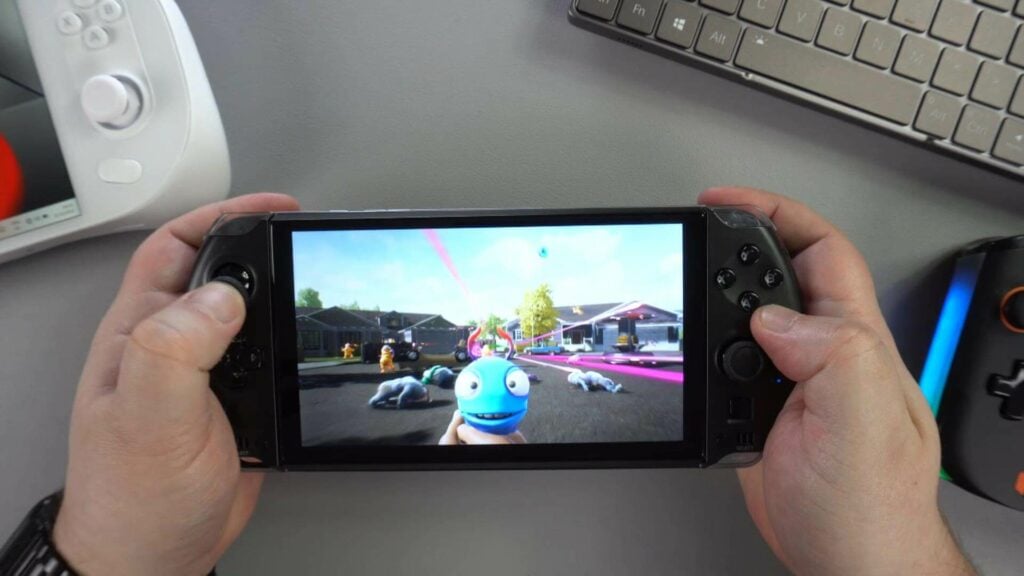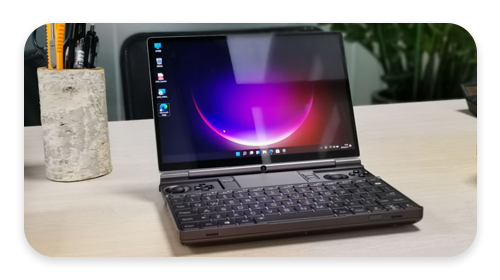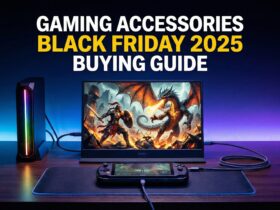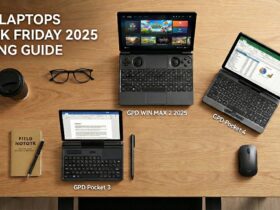-
Design
(5)
-
Build Quality
(4.5)
-
Display
(5)
-
Performance
(4.5)
-
Features
(4)
Sammendrag
Denne AMD Ryzen 7 6800U-drevne håndholdte spill-PC-en kan gjøre alt! Du kan enkelt spille de nyeste AAA Windows-spillene og avanserte emulatorer. Den er lett å ta med seg i lommen og har alt du trenger for å spille!
Totalt sett
4.6Brukeranmeldelse
( votes)Fordeler
- AMD Ryzen 7 6800U-prosessor med høy ytelse
- Spiller de nyeste AAA-spillene og avanserte emulatorer
- Den mest lommevennlige av denne generasjonen håndholdte
- Utskyvbart tastatur som er praktisk for raske meldinger
Ulemper
- Skjermen kan være litt liten hvis du er vant til å spille på større skjermer.
Vi har ventet på GPD WIN 4 med sin Vita-lignende design en stund nå. Vi har den i hendene, og i vår GPD WIN 4-anmeldelse vil vi også sammenligne ytelsen med AYANEO 2, ONEXPLAYER Mini Pro og GPD WIN MAX 2.
GPD WIN 4 Gjennomgangsvideo
GPD WIN 4 Unboxing
Men først, en rask unboxing for å starte GPD WIN 4 anmeldelse. Vi har GPD WIN 4 håndholdt gaming PC selv som vi vil vise i mer detalj om kort tid.
Under ligger en brukerveiledning som går gjennom funksjonene til GPD WIN 4. Inne i esken er det en lader. Vi inkluderer riktig adapter for ditt land. Og på den andre siden er det en USB Type-C-ladekabel.
GPD WIN 4 Oversikt
Vi fortsetter vår GPD WIN 4-anmeldelse med en oversikt over den håndholdte enheten. GPD WIN 4 er en håndholdt spillkonsoll som måler rundt 22 x 9,2 x 2,8 cm (8,6 x 3,6 x 1,1 tommer) og veier 598 g. Det er den desidert minste av de 6800U-baserte håndholdte enhetene.
Sammenlignet med de klassiske PSP- og Vita-modellene er designet på Win 4 tydelig inspirert av dem begge. Stropphullet til venstre og skulderknappene fra PSP, og D-Pad og knapper fra Vita skiller seg spesielt ut, men det finnes også andre likheter.
Skjermen er en 6-tommers H-IPS-berøringsskjerm med en opprinnelig oppløsning på 1920×1080 som støtter 40 og 60 Hz oppdateringsfrekvens. Dette er nyttig hvis du vil kjøre et spill ved 40 Hz for raskere ytelse eller for å spare batteritid. Oppløsningen er imidlertid lavere enn på de andre håndholdte enhetene, som har 1200P og 800P.
Skjermen skyves opp for å avsløre det bakgrunnsbelyste tastaturet. I motsetning til Win 3 har dette taktile knapper, noe som føles mye bedre å bruke enn det ganske ubrukelige haptiske tastaturet som finnes i forgjengeren. Tastaturet er lite og egner seg bedre til korte meldinger enn til lange dokumenter.
Du har standard spillkontroller, inkludert Vita-lignende D-Pad. Det er noen ekstra knapper, inkludert en fingeravtrykksskanner og en optisk sensor som du kan bruke til å flytte musemarkøren.
På venstre side finner du et spor for Micro SD-kort og en bryter for å veksle mellom mus- og joystick-modus.
På toppen er skulder- og avtrekkerknappene. Det er strøm- og volumkontrollknapper. USB 4-inngangen kan for eksempel brukes til å koble til en ekstern GPU. Deretter følger en USB 3-port og en 3,5 mm hodetelefonport.
På baksiden er det to egendefinerte taster som kan defineres i den medfølgende programvaren.
GPD WIN 4 Tekniske spesifikasjoner
| CPU | AMD Ryzen 7 6800U, 8 kjerner og 16 tråder som kjører opptil 4,7 GHz ved 28 W TDP |
| GPU | AMD Radeon 680M kjører opptil 2,2 GHz |
| RAM | 16 GB eller 32 GB LPDDR5 |
| OPPBEVARING | 1 TB eller 2 TB m.2 NVMe 2280 SSD |
| KOMMUNIKASJON | 802.11 a/b/g/n/ac/ax WiFi 6 Bluetooth 5.2 4G LTE-modul (selges separat) |
| BATTERI | 45,62Wh oppladbart Li-polymer Full belastning ved 28 W TDP: 1 time og 19 minutter Tomgang ved 28 W TDP: 8 timer og 15 minutter |
| VIFTESTØY OG TEMPERATUR | Høyeste viftestøy: 61 dB Høyeste temperatur: 41 °C) |
Batteriet er på 45,62 Wh, og GPD rapporterer at det varer i opptil 10 timer ved letteste bruk. I våre egne tester kjørte vi Cinebench på en sløyfe ved 28 W TDP, og batteriet varte i 1 time og 19 minutter. Det er omtrent like lang tid som AYANEO 2 og ONEXPLAYER Mini Pro-håndholdte enheter. Og i hvilemodus ved 28 W TDP fikk vi 8 timer og 15 minutter, noe som er veldig imponerende, rett under det dobbelte av de andre håndholdte!
Mens vi kjørte Cinebench, målte vi viftestøyen og temperaturen under full belastning. Vi fikk en maksimal viftestøy på 61 dB og en høyeste temperatur på 41 grader. Det er omtrent samme støy som de andre håndholdte, og litt lavere temperatur.
Systembenchmarks
I vår GPD WIN 4-anmeldelse kjører vi som alltid noen systembenchmarks, slik at vi kan sammenligne ytelsen med andre håndholdte enheter. Vi bruker PCMark, 3DMark, Cinebench og CrystalDiskMark for å dekke CPU, GPU, RAM og lagring på tvers av ulike scenarier. Vi kjører alle disse systembenchmarkene ved 28W TDP. La oss ta en titt på resultatene.
| PCMARK | 5,054 |
| 3DMARK TIDSSPION | 2,788 |
| 3DMARK FIRESTRIKE | 6,691 |
| 3DMARK NATTRAID | 25,667 |
| CINEBENCH | 11,018 |
| CRYSTALDISKMARK | 2 091 / 1 942 MB/s (lesing/skriving) |
For PCMark fikk vi en poengsum på 5 054, noe som var overraskende lavere enn vi hadde forventet.
For 3DMARK kjørte vi tre benchmarks, på Time Spy fikk vi 2 788, på FireStrike fikk vi 6 691 og Night Raid fikk vi 25 667. Heldigvis har alle tre veldig gode poengsummer!
På Cinebench fikk vi en poengsum på 11 018 på flerkjernetesten
Og for CrystalDiskMark-lagringshastighetsreferanser fikk vi en høyeste lesehastighet på 2 091 og høyeste skrivehastighet på 1 942 MB/s.
Totalt sett er det gode resultater, men PCMark var lavere enn forventet, som du kan se i sammenligningen med AYANEO 2, ONEXPLAYER Mini Pro og GPD WIN MAX 2 håndholdte PC-er.
| OXP MINI PRO | WIN MAX 2 | AYANEO 2 | WIN 4 | |
| PCMARK | 6,414 | 6,346 | 6,496 | 5,054 |
| 3DMARK TIDSSPION | 2,748 | 2,805 | 2,720 | 2,788 |
| 3DMARK FIRESTRIKE | 6,589 | 6,692 | 6,689 | 6,691 |
| 3DMARK NATTRAID | 24,459 | 22,484 | 25,081 | 25,667 |
| CINEBENCH | 11,142 | 11,357 | 10,989 | 11,018 |
Som vi har sett så langt, ser vi at resten av referanseresultatene er ganske like hverandre. Vi kan kjøre referansene på nytt og se at det er noen forskjeller mellom dem.
Disse resultatene er gode for GPD WIN 4 håndholdte spill-PC-er, men det finnes ingen håndholdte PC-er med langt høyere ytelse enn de andre. Men vil det endre seg for spillytelsen?
Benchmarks for spill
For spillbenchmarkene tester vi med tre TDP-er; 11W, 20W og 28W. GPD-skjermoppløsningen er 1920×1080, og dette betyr også at den kjører med 720P. De andre håndholdte maskinene kjører alle med 1200P og 800P, så det vil være en viss forskjell i ytelse på grunn av den litt lavere oppløsningen på GPD WIN 4.
Forza Horizon 5
Vi starter med Forza Horizon 5. Vi kjører på de svært lave grafikkinnstillingene. 28W 1080P får vi et gjennomsnittlig antall bilder per sekund på 88. På 720P får vi 115.
Ved 1080P og 20 W får vi 79 bilder per sekund, og ved 11 W får vi 46.
Shadow of the Tomb Raider
Deretter kjører vi Shadow of the Tomb Raider-referansen på de laveste grafikkinnstillingene. På 28W 1080P får vi 72 bilder per sekund i gjennomsnitt, på 720 får vi 86.
Ved 1080P 20W får vi 65, og ved 11W får vi 33.
Cyberpunk 2077
Vi kjørte Cyberpunk 2077-benchmarks på de lave grafikkinnstillingene. På 28W 1080P fikk vi en gjennomsnittlig bildefrekvens på 53,55, og på 720P fikk vi en veldig god 74,97.
Ved 1080P 20W fikk vi 47,16, og ved 11W fikk vi 22,06.
Call of Duty Modern Warfare II
Vi avslutter referansene med det nylig utgitte Call of Duty Modern Warfare II som kjører på Minimal grafikkinnstillinger. Ved 1080P 28W fikk vi en gjennomsnittlig bildefrekvens på 71, ved 720P fikk vi tresifrede tall med 101.
Ved 1080P 20W fikk vi 64 og ved 11W fikk vi 37.
Benchmark-resultater for spill
Et raskt sammendrag av resultatene fra spillreferansene på tvers av de ulike TDP-ene.
| 28 W TDP | 20 W TDP | 11 W TDP | |
| FORZA HORIZON 5 | 88 FPS | 79 FPS | 46 FPS |
| SKYGGEN AV GRAVRØVEREN | 72 FPS | 65 FPS | 33 FPS |
| CYBERPUNK 2077 | 53,55 FPS | 47,16 FPS | 22,06 FPS |
| CALL OF DUTY MODERN WARFARE II | 71 FPS | 64 FPS | 37 FPS |
Det samme mønsteret med rundt 25 W TDP som det beste punktet når det gjelder ytelse og effekt, gjelder for GPD WIN 4. Vi kan se en stor økning i ytelse mellom 11 W og 20 W, og en relativt lavere økning mellom 20 W og 28 W.
Og for å sammenligne resultatene med de andre 6800U-håndholdte. Vær oppmerksom på oppløsningsforskjellene på 720P for WIN 4 og 800P for de andre håndholdte enhetene. Dette vil gi WIN 4 en fordel når det gjelder ytelse, ettersom den viser mindre på skjermen og vil ha en liten økning i ytelsen.
| OXP MINI PRO | WIN MAX 2 | AYANEO 2 | GPD WIN 4 | |
| FORZA HORIZON 5 | 92 FPS | 94 FPS | 90 FPS | 88 FPS |
| SKYGGEN AV GRAVRØVEREN | 75,68 FPS | 69 FPS | 68 FPS | 72 FPS |
| CYBERPUNK 2077 | 52,68 FPS | 48,24 FPS | 48,78 FPS | 53,55 FPS |
| CALL OF DUTY MODERN WARFARE II | 54 FPS | 65 FPS | 67 FPS | 71 FPS |
Referanseverdiene er generelt omtrent de samme på tvers av enhetene, noe som er godt å se. Igjen kan du kjøre benchmarkene på nytt og få noen flere eller færre FPS hver gang. Som nevnt i mine tidligere anmeldelser, betyr det å ha omtrent samme ytelse at vi kan bestemme hvilken håndholdt PC vi skal kjøpe basert på for eksempel design, funksjoner og pris.
Spillytelse
Å kjøre spill med høy oppløsning og grafikkinnstillinger er bra for å sammenligne tall, men ikke alltid faktisk å spille. Så for denne GPD WIN 4-anmeldelsen vil vi spille noen spill på den håndholdte spillkonsollen med de beste innstillingene på 60 eller høyere FPS, samt innstillinger for å spare batterilevetid. Ettersom ytelsen stort sett er den samme som på andre 6800U-håndholdte, vil vi bruke lignende innstillinger som på disse.
Forza Horizon 5
Forza Horizon 5 kjører flott på AMD-prosessorene. Vi kan kjøre 1080P på en blanding av Medium og High grafikkinnstillinger på 28W. For best batterilevetid kan du kjøre 720P på svært lave grafikkinnstillinger på 11W og holde deg innenfor 60 FPS.
Overwatch 2
For Overwatch 2 kan vi kjøre på 1080P 28W TDP på de høye grafikkinnstillingene uten å bruke noen oppskalering. For best batterilevetid kan du kjøre på 720P ved 11W TDP med lave grafikkinnstillinger.
Dommedag evig
På Doom Eternal har du to valg, 1080P 28 W på en blanding av lave og middels grafikkinnstillinger, eller 720P på høye grafikkinnstillinger. For best batterilevetid kan du kjøre med 720P 15W TDP på de lave grafikkinnstillingene.
Call of Duty Modern Warfare II
Hvis du spiller kampanjen, kan du bruke 720P 28W på de balanserte grafikkinnstillingene uten oppskalering for rundt 60 FPS. Hvis du spiller på nettet, vil du sannsynligvis ha høyest mulig FPS, så du kan gå med 720P 28W på de minimale grafikkinnstillingene uten oppskalering.
Emulatorens ytelse
Vi har sett at de andre 6800U-håndholdte konsollene har hatt en fantastisk ytelse når det gjelder emulering. I likhet med de andre kan GPD Win 4 emulere alt opp til PlayStation 2-tiden uten å bli svett. På mange av disse systemene kan du senke TDP for å spare batteri, eller øke gjengivelsesoppløsningen for å få grafikk av høyere kvalitet. Vi skal se på noen av de nyere eller mer avanserte systemene som kan emuleres.
Xbox - Xemu
Som mange av disse nyere emulatorene er de under utvikling, så kompatibiliteten kan variere. For kompatible spill ser vi god ytelse, og mange av spillene vi prøvde kjørte med full eller nesten full hastighet. Avhengig av spillet kan du øke gjengivelsesoppløsningen.
Citra
Som på de andre håndholdte PC-ene kan ytelsen på Citra-emulatoren være blandet. I noen spill, som Sonic Generations, ser vi av og til lags i shader caching. Men andre gang du spiller gjennom, er det ganske jevnt. Mindre krevende spill vil generelt sett kjøre mye raskere ved første gjennomspilling.
Xbox 360 Xenia
Xbox 360-emulering er virkelig på god vei. For kompatible spill kan du definitivt få en solid bildefrekvens. Jeg prøvde noen av de vanlige spillene mine, som Sonic Racing Transformed, PGR2 og Vanquish, og de var veldig spillbare. Du vil sannsynligvis se noen spill med etterslep, men det er som forventet.
RPCS3 PS3
For kompatible spill på RPCS3 vil du finne mange av dem som kjører i full hastighet. Jeg prøvde WipeOut HD, Tekken 6, OutRun Arcade og Skate 3, og de kjørte alle i nesten eller full hastighet, noe som er flott å se.
YuZu og Ryujinx
For Yuzeu og Ryujinx ser vi generelt veldig god ytelse på tvers av tredjeparts- og førstepartstitler. Mange av dem kjører i gjennomsnitt med full eller nesten full hastighet, men det avhenger av kompatibiliteten.
Vita3K
Trodde du at jeg ville glemme å nevne konsollen som inspirerte GPD Win 4-designet? 🙂 Til tross for at Vita-emulatoren Vita3K fortsatt er under utvikling og kompatibiliteten kan variere, finnes det fortsatt noen spill som fungerer og som er ganske perfekte å spille.
Avsluttende tanker
Vi vil avrunde vår GPD WIN 4 anmeldelse med våre tanker. Hvis du vil ha den minste 6800U-drevne håndholdte, vinner GPD WIN 4 det uten tvil. Selv om den ikke er helt bukselomme, kan du passe den i en jakkelomme i motsetning til resten. Vi har sett fra kommentarer at Vita-stil design respons er veldig mye blandet med folk på begge sider sier det er en "flott design" eller at "GPD billig ut og kopiert det". Personlig synes jeg det er flott, du kan si det er en Vita 2!
Den mindre skjermstørrelsen er noe å vurdere, den er 6 tommer i størrelse sammenlignet med 7 tommer på AYANEO 2 (anmeldelse her) og ONEXPLAYER Mini Pro (anmeldelse her) og en massiv 10 tommer på GPD WIN MAX 2 (anmeldelse her). Jeg måtte myse for å se noe av teksten på WIN 4, mens jeg ikke gjorde det så mye på de andre skjermene. Hvis ..host… størrelse betyr noe, er dette definitivt en faktor å ta hensyn til.
Etter å ha brukt litt tid med GPD WIN 4 synes jeg den er behagelig å spille på. Den er ikke så liten at hendene føles trange, men sammenlignet med de større håndholdte har du mindre plass til hendene, og generelt føles de mer komfortable.
Ytelsesmessig er det en liten generell fordel med GPD WIN 4-spillhåndholdte, ettersom den kjører på 1080P i stedet for den høyere 1200P som finnes på de andre håndholdte. Men du mister noe av oppløsningen hvis dette er en faktor for deg. Alle spillene og emulatorene vi prøvde kjører akkurat det samme som de andre håndholdte, så du taper eller vinner ikke mye i ytelsessammenligning.
Kampen om de håndholdte 6800U-maskinene
Vi kommer til å lage en fullstendig sammenligningsvideo etter nyttår, så hold utkikk etter den, og innen den tid bør vi ha ONEXPLAYER 2. Vi vil også gjerne høre dine tanker om hvilken håndholdt du ville kjøpt og hvorfor? Gi oss beskjed i kommentarfeltet.
Hvor kan jeg kjøpe GPD WIN 4?
Du kan lese mer og kjøpe GPD WIN 4 her, og hvis du bruker koden GPDWIN45OFF i kassen, får du 5 % rabatt! Du kan bla gjennom vårt utvalg av håndholdte spill-PC-er her.
Det pakker denne GPD WIN 4-anmeldelsen, vi håper du har funnet den nyttig. Ikke glem å gi oss beskjed i kommentarfeltet om hvilken håndholdt du vil kjøpe og hvorfor!
[azp_custom_product id="34″]





